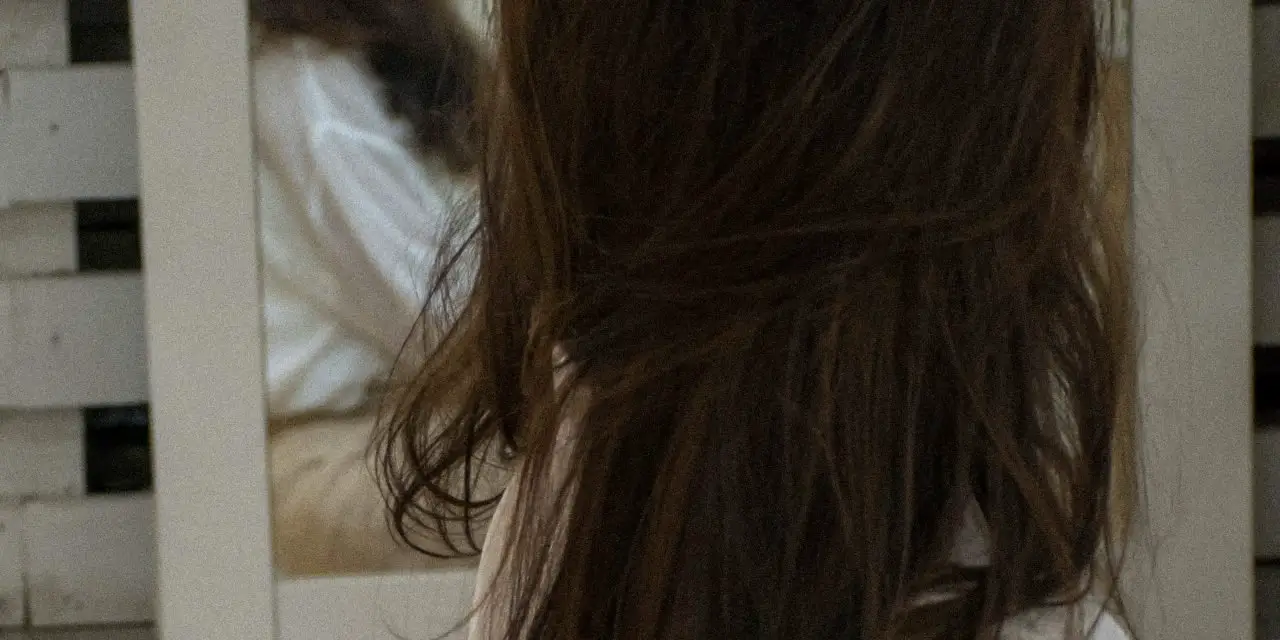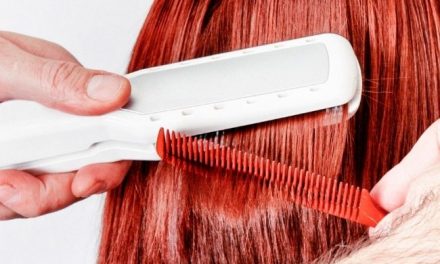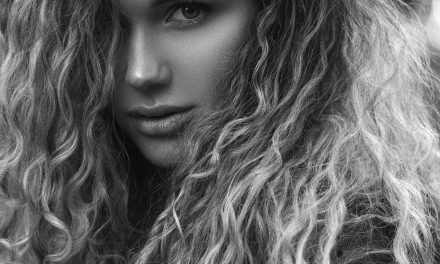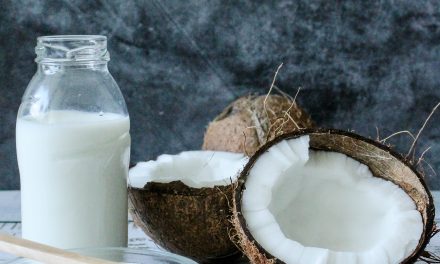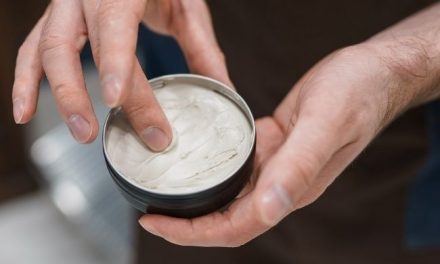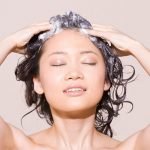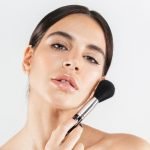Hey Beautiful! This site is reader-supported and we earn commissions if you purchase products from retailers after clicking on a link from our site.
When it comes to hair maintenance, we all have our own struggles. Those with curly hair dream of having straight hair. Those with straight hair wish for long and luscious locks. Then those with thick hair want more manageable hair. And those with thinner hair daydream about hair so thick they can’t run their fingers through it.
One thing that most of us do not hope for, however, is frizzy hair. If you are someone who has thick, curly, and usually quite frizzy hair, then you have probably spent hours looking for ways to style and tame your mane.
Lots of people turn to keratin when it comes to strengthening not only their hair, but their nails and skin. Keratin comes in many forms. But when it comes to using keratin to treat your hair, it comes in the form of a solution treatment.
Many people depend on these treatments, however many people have started to suggest that keratin treatments cause hair loss.
If keratin treatments are something you use to tame your hair but you are worried about the risk of hair loss, I am here to answer all of your questions!
Today I am going to tell you all about the risks of keratin treatment, why it may be causing hair loss, and how to prevent hair loss after a keratin treatment! By the end of this article you will have tame but luscious locks!
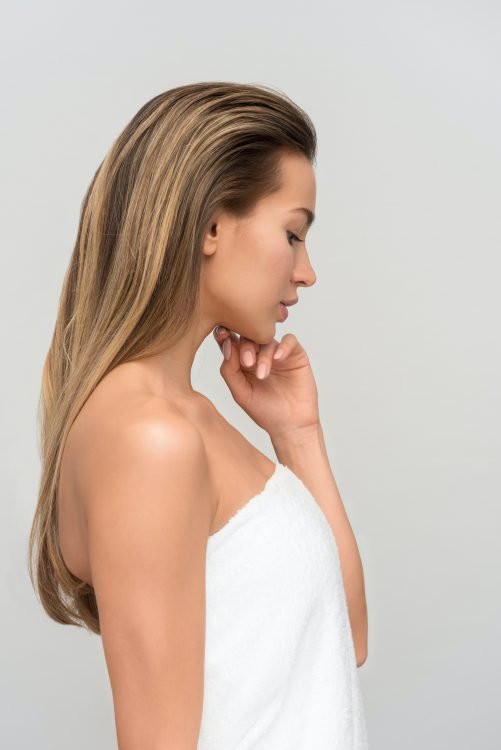
What is Keratin?
Before knowing the ins and outs of whether or not keratin is damaging to our hair, it would be useful to know what keratin is.
Keratin is a protein that makes up our hair, skin, and nails. However it can also be found in your internal organs and glands.
Many people take keratin supplements to help strengthen their hair and nail, and to also improve their skin. These usually come in a gummy or a tablet form.
However, not only is keratin said to strengthen hair, but it is also said to help tame and smooth down frizzy hair. Using keratin to tame frizzy hair is done by using a keratin treatment. This is usually performed by providing an oil-based solution to the scalp and hair. Afterwards, it is sealed it in using heat. Usually straighteners as this helps to flatten the hair and to bond the solution to the strands.
Not only does a keratin treatment smooth your hair, but it will add a very healthy shine as well. This leaves people who usually have frizzy, bushy hair, with shiny, straight hair – the dream!
Does keratin cause hair loss?
Keratin treatments, as mentioned, are undertaken using flat irons and very high temperatures. These high heats can completely damage the hair follicle. Once the hair follicles become weakened, they will cause hair to break. But may also mean that hair begins to fall out from the root as well if it is not strong.
Although the treatment is extremely appealing for those with frizzy hair, the popular treatments used worldwide not only sleek down difficult hair and help to rebuild it, but they can also have the opposite effect.
If you begin to notice too much hair in your hairbrush, or lots of clumps in the shower, this can be due to a number of reasons that impact your hair during a keratin treatment.
High Heat
As mentioned, the intense heat used during a keratin treatment can be one of the main causes for hair damage, resulting in hair loss.
The heat is a crucial part of the keratin treatment. It is needed to seal in the proteins with the hair to help smooth and strengthen it.
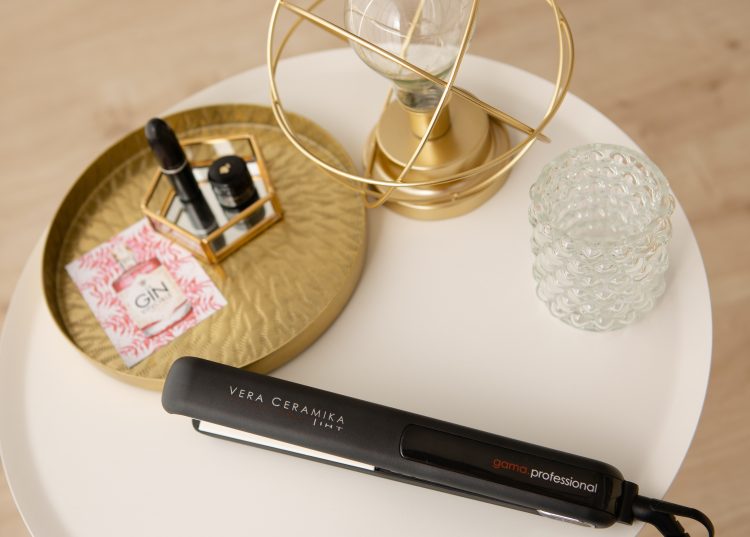
The straightening iron tends to damage the hair. However this is not permanent and your hair will regain good condition over time. The heat is less likely to cause hair loss from the root as well. So there are a few other factors of the keratin treatment that will contribute more to hair loss as opposed to hair snapping at the ends.
Harsh Chemicals
Not only does a keratin treatment involve a lot of high heat, but it can also use some harsh chemicals. A traditional keratin treatment, sometimes referred to as a Brazilian keratin treatment, requires a chemical called formaldehyde. This is a chemical in hair care known to be hazardous.
Similarly to high heat, strong chemicals will damage the hair, causing breakage, and are less likely to cause hair loss from the root itself. However, the weakening of the hair follicle can cause hair to fall out more easily. This means that both the heat and chemicals together could contribute to why you are noticing a thinning in your hair.
Sensitive Scalp
If you have a sensitive scalp, you probably noticed that a number of hair care products and treatments can cause you irritation. If you are one to suffer form an irritable scalp then keratin treatments may be something for you to steer clear of.
Whilst the keratin treatment can be perfect for someone who needs to strengthen their hair, chemical burns to the scalp can prevent healthy growth from happening. This can cause your hair to drop out from the scalp itself, not only damaging your hair but also thinning it a great deal.
If you do decide to opt for a keratin treatment, ensure you make your stylist fully aware of your scalp situation. Whilst no keratin treatment should saturate your scalp, it is particularly important for those with sensitive scalps to avoid this.
Chemicals and heat can weaken the hair. These can ultimately cause hair to break off and fall out. But having a sensitive scalp is the key cause to hair loss from the root, particularly with treatments that are as intense as a keratin one.
Is keratin good or bad for hair?
So, now that we know that keratin treatments can cause hair loss,you are probably wondering if keratin itself is actually good for your hair.
On one hand you have a treatment that can help tame and protect your hair. But on the other hand you have a treatment that can cause other forms of damage and potential hair loss.
However, many people still use keratin and keratin treatments for more than just taming their mane.
Can keratin help hair growth?
Many people believe that keratin can help your hair to grow. Whilst it will not physically speed up the time it takes for your hair to physically grow from the root, keratin does help to strengthen your hair.
Replenishing lost keratin in your hair shaft can help your hair to become stronger and less prone to breaking. If your hair is breaking less at the ends then it will remain longer as it grows. This means you will be able to grow your hair longer than usual which can appear to be the keratin helping hair growth.
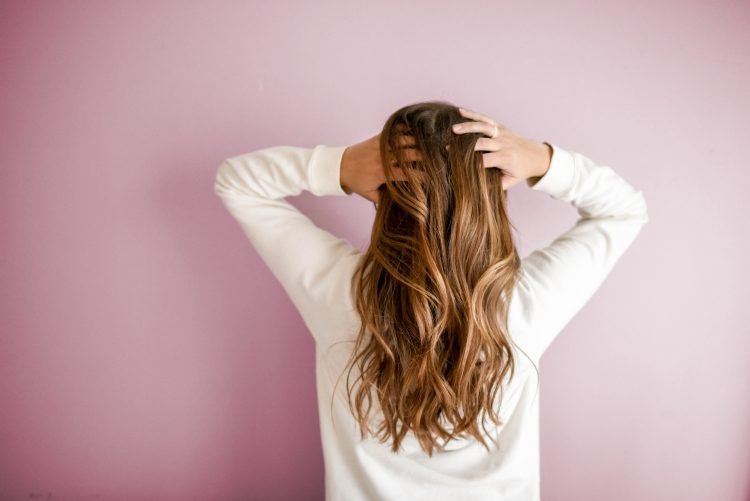
Stronger hair will also become thicker which can appear longer and more full of volume. If you have less hair breaking off, you will have more hair continuing to grow.
Whilst this can be the case, as the proteins help your hair to become thicker and healthier, it can also do the opposite if your hair does become negatively impacted from the treatment. Whether or not keratin can help strengthen and grow hair is really dependent on how your hair reacts to the treatment.
What are the benefits of keratin treatment?
Whilst a keratin treatment will not straighten your hair, it will smooth your hair. The treatment won’t just make it more shiny and flat, but will make it a lot more manageable. This means that keratin treatment can help you to get your hair to a place where styling it may not need as much heat and damage as it normally would when trying to maintain it.
The proteins of a keratin treatment will help strengthen your hair if applied correctly. You will not only have smoother hair from a keratin treatment, but overall your hair should become healthier.
Despite this, the treatment itself can cause damage. While the added proteins can benefit your hair strength, shine, and manageability, it can also cause some damage and breakage to hair. This is true particularly for those who may already have damaged hair.
How to stop hair loss after keratin treatment
Knowing how to stop hair loss after keratin hair treatment can be very valuable to those who suffer from frizzy hair and need to have it smoothed, but also suffer from hair fall after the smoothing process has been done.
Start with the scalp
Having a healthy, well-nourished scalp is the key to having strong and healthy hair. Starting with the root of it all means that any growth will begin from a strong, stable point, leaving the rest up to you.
Using an oil to massage into the scalp can help to provide moisture and the massaging of your fingertips can help promote healthy blood circulation to your scalp, encouraging hair growth.
Whilst your natural oils will help strengthen your hair, occasionally working in a third party oil that is known to have hair-growth properties can help to boost the process. Using coconut oil or castor oil is ideal for this.
Rosemary oil is also known to help strengthen your hair and so adding this to your carrier oil can be a good idea. Peppermint, tea tree, and lavender oils can also have a similar impact but they tend to have a much stronger smell.
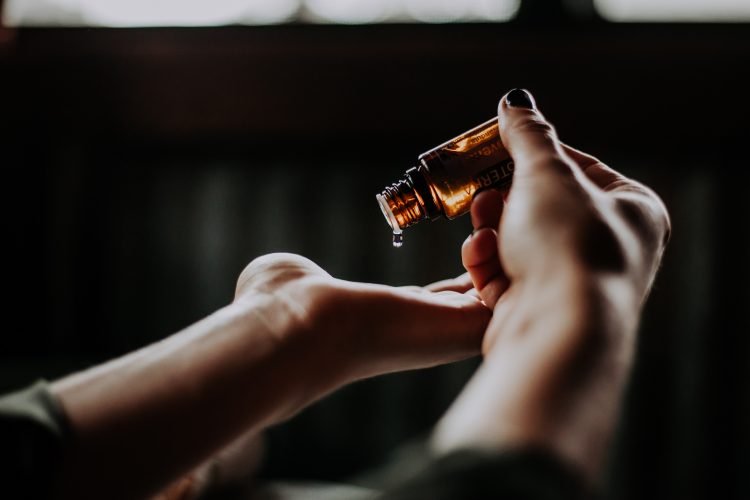
This extra moisture and motion can really help to sooth your scalp, prevent the keratin treatment from causing irritation and ultimately resulting in hair loss.
Shampoo and Conditioner
Whilst many people use a keratin based shampoo and conditioner, a lot of people also ask, “does keratin shampoo and conditioners cause hair loss?” whilst your scalp can potentially react to any hair care products, the keratin shampoo side effects are not the same as a keratin treatment.
Keratin shampoo will provide the extra proteins without the heat and chemicals of the treatment. Whilst this sounds great, it also means that the proteins are not sealed into the hair in the same way they would be during a keratin treatment and so the results are not nearly as prominent.
If you opt for a keratin treatment, it is very unnecessary to use a keratin shampoo or conditioner. Keratin treated hair needs shampoo and conditioner that are as natural as possible.
The harsh chemicals in some shampoos and conditioners will strip off the keratin and leave your hair dry, rough, and potentially back to frizzy.
When looking for the right shampoo and conditioner, go for any that are as natural as possible. But also ensure they do not contain any sulfates, as this will also cause damage to the hair. Using shampoos and conditioners that contain oils such as coconut, argan or castor oil can be a great way to get in that extra moisture.
They key to good hair care after a keratin treatment is to keep the scalp and hair as moisturized as possible. A great way to do this is to use a hair mask or a deep conditioner once a week.
Deep conditioners and masks work to help hydrate the scalp. They are a fantastic way of maintaining shine, protecting damaged ends, and keeping that silky and smooth texture that has been achieved from the keratin treatment.
Brushing your hair
Not only can your hair become weakened and damaged from heat and chemicals, but brushing it harshly can cause it to weaken and break, particularly when it is wet.
Your hair is at its most weak and fragile point when it is wet. Brushing your hair when it is soaking wet can cause it to stretch and weaken.
If you have tangly hair, use a moisturizing spray to help soften the tangles. Then dry your hair a little bit or wait for it to dry. Use a tangle teaser brush or a wide toothed comb to protect your hair as much as possible.
Not only does tugging your hair when brushing cause it to weaken and break, but tugging at your hair when styling it into ponytails or buns, or pulling on it with straighteners and curlers can pull more strands from your scalp. These all cause unnecessary stress to the scalp.
There is no such thing as being too gentle on your hair. So even when it comes to using a towel to dry your hair, you should be as gentle as you can.
As mentioned, protecting the scalp is the ultimate way to protect the hair and the hair growth.
Stay Healthy
What you put on your hair is not the only thing that matters. It is just as important to consider what you put in your body.
Whilst hydrating the scalp and hair is key, hydrating your body is also important. Ensuring you drink a lot of water can help to rejuvenate your skin and hair as well.
A part of the hair shaft is made of water. By drinking plenty of water, you can ensure you remain hydrated. This will then help to keep your hair happy and healthy. Hydration is known to improve skin, and your scalp is no exception to this.
Not only is what you drink important, but what you eat can also help.
Eating foods that are rich in protein and iron will then transfer to your hair growth. Whilst keratin is a protein-based treatment, gaining protein in other ways is also useful when promoting healthy hair growth.
An amino acid called lyside is present in lots of proteins and is crucial for strong hair growth. Proteins help all forms of growth, from muscles, to nails, to hair. So it is really crucial to eat enough protein for your overall health. Eating lots of eggs, meats, cheese, and nuts can help you to achieve more protein into your diet.
Further to protein, incorporating plenty of iron into your diet is great for hair growth. Iron deficiency can cause hair loss. So having plenty of iron is not only good for your health, but also for your hair.
Finally, ensuring you have enough vitamins in your diet will help to oxygenate the scalp. This then helps prevent shedding and can help your hair to grow strong.
Have a day off
Finally, taking time away from the salon can help.
If your hair does appear to be thinning or breaking, the best thing to do is to hydrate it. Also, give it some time to recover. Give it some time to breathe and regain its strength before applying heat and chemicals to it again.
If your hair is particularly dry and damaged, you can take a step back from how much you wash it. Allowing the natural oils to develop and work into the scalp and hair can be a great way of helping to revitalize it all.
If you do have a keratin treatment done, it is really important to not wash your hair or get it wet for a few days after. This allows the treatment to properly settle in. It will start working its magic without the risk of washing any of it out.
Similarly, take some time to yourself. Stress levels can have a huge impact on hair loss. So anxiety and worry can increase the hair loss you are experiencing.
If there is something causing you particular stress then try and tackle this. Targeting the cause of stress can help your body from feeling less worn out. This will eventually help to reduce any hair loss that worrying causes.
Does Keratin Cause Hair Loss – Final Thoughts
When it comes to hair loss caused by keratin treatments, the key to success is hydrating the scalp.
Keratin treatments can cause some damage and may irritate the scalp which can lead to hair loss,. But ultimately you should be able to have a keratin treatment done without having to also suffer from hair loss.
Keratin treatments are a great way to not only smoothen your hair, but to also add extra proteins to help strengthen it.
However, the heat and chemicals can cause problems, particularly for those with sensitive scalps. You can avoid this by ensuring your diet includes a lot of hydration, protein, and the correct vitamins. Also by following steps for good hair care.
Using oils, moisturizing shampoos and conditioners, and avoiding tugging and pulling your hair will help for your hair to strengthen and grow. They can also help reduce any negative side effects of the keratin treatment.
So, when deciding on whether you want a keratin treatment, firstly consider your scalp type. If the risk of hair loss does not outweigh the desire to have silky and smooth hair, then enjoy your treatment. But make sure you continue to look after your scalp and hair after the treatment.
A luscious scalp will lead to luscious locks!
For more about hair health, check out our blog:
FAQs
Minoxidil should not be used 24 hours before and after the hair treatment procedure. Be sure to not double your doses of minoxidil to make up for any missed doses. To apply minoxidil topical solution: Make sure your hair and scalp are completely dry before applying this medicine.

